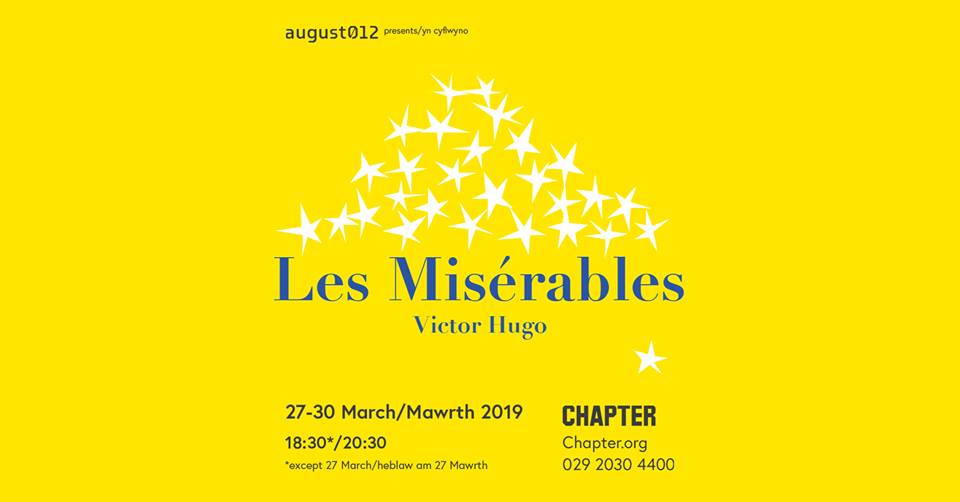
Up the ramps of steep metal stairs, in a room in the Loft, outside of the main building of Chaptert Arts Centre, the theatrical company August012 are rehearsing for their unique take on Les Misérables by Victor Hugo. The music begins. It’s a military tune. It’s 1815, the battle of Waterloo. The fighting, the casualties, the hollow victory. Then, at a stroke, it’s 2016, in Cardiff, the night of the EU Referendum. The battle of Waterloo and the battle of Brexit come together through a meeting and clashing of sounds, words, music, and dance making for an immersive sensory experience.
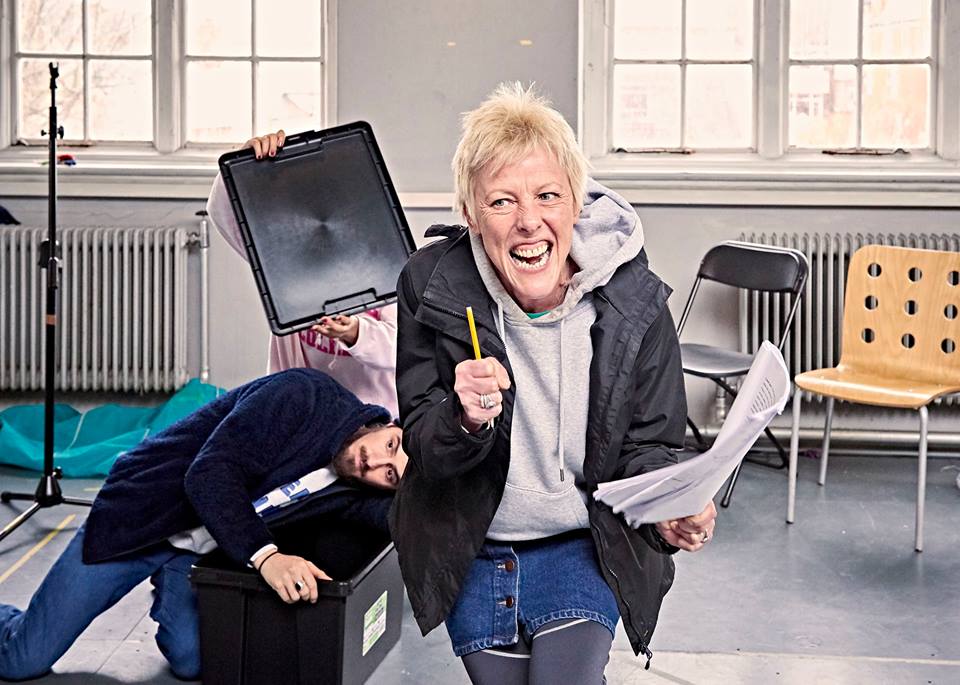
The tragedy and horror of Waterloo is juxtaposed with the carefree and indulgent pleasure of holiday-makers in 2016 ahead of the Referendum and the comic coming to terms with the result. It is a kind of estrangement that seeks to bring awareness of the historical implications of Brexit through rhythm and fun. All the pieces, the description of the battle, the drums, the music, a man chocking on a Dorito, Farage, and soldier-dancers, come together with perfect timing. The creativity fuelling Les Mis comes from the collaboration of Director Mathilde Lopez, Choreographer Matteo Marfoglia, and Composers John Norton and Branwen Munn, the latter working from West Wales.
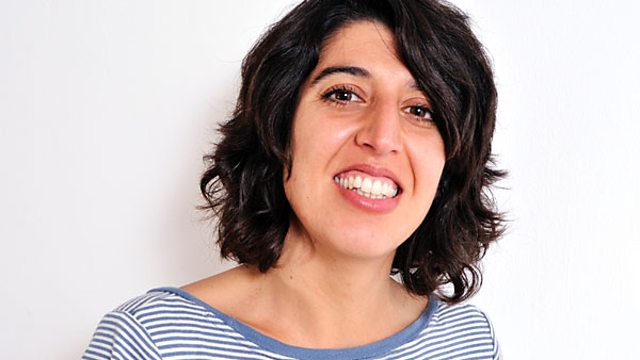
Mathilde Lopez 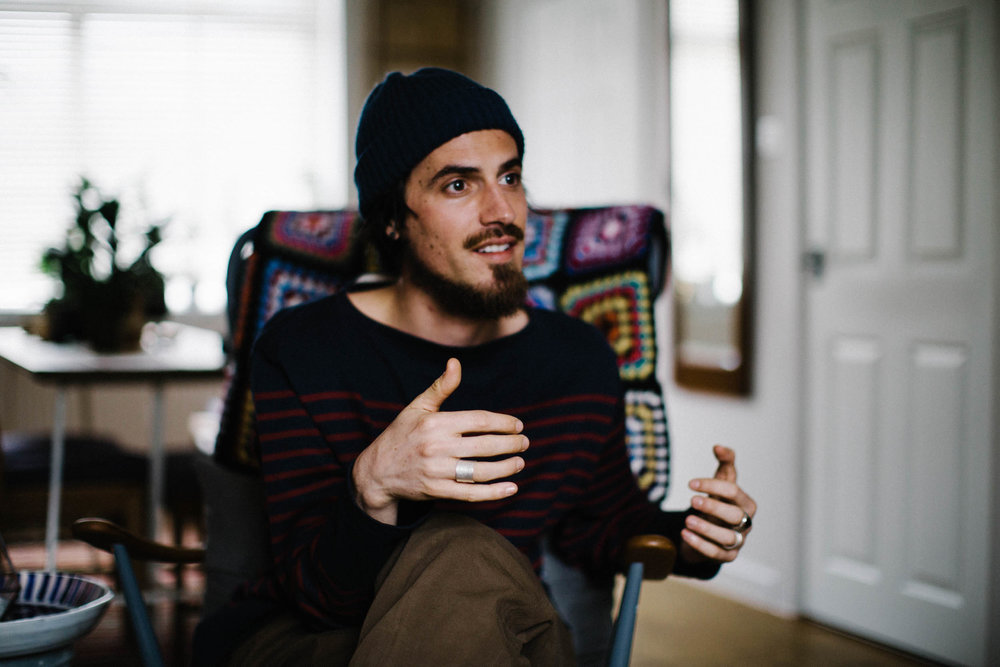
Matteo Marfoglia 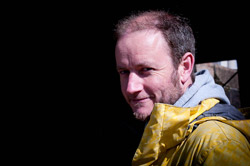
John Norton 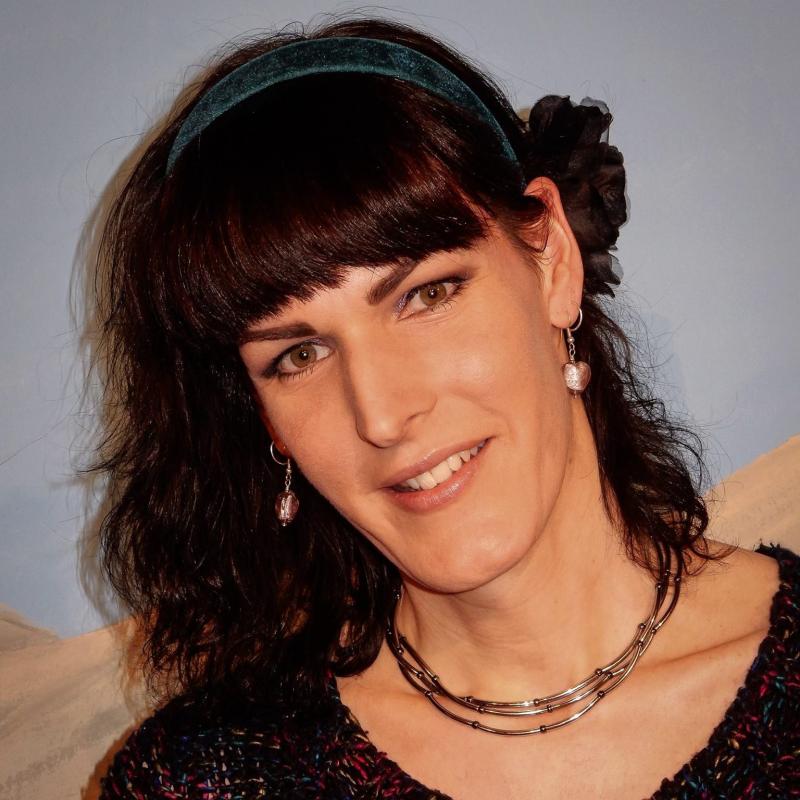
Branwen Munn
The coming together of French-Spanish, Italian, and Welsh talent with diverse national and cultural backgrounds makes gives an extra dimension to the careful multi-layered assembling of sound, words, and movement. It is the collaborative and supportive nature of these relationships that stands out as I watch the rehearsals. There is no hierarchy, no instructions, no neat division of labour, but a coming together to harness the talents and creativity of one another. Mathilde says, ‘We can do that,’ not ‘Can you do that?’ She is not imparting instructions, she listens to others and makes suggestions. The work emerges from this shared effort and fun. They’re working hard but they’re also having fun.
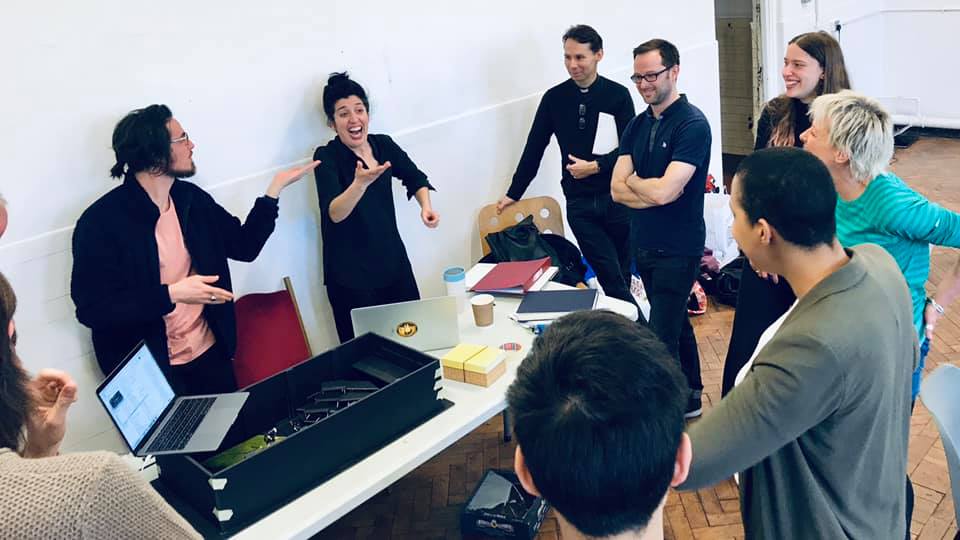
The atmosphere is so relaxed and friendly that I wonder how a comment from me might be received. I comment and I’m struck by Carwyn, one of the actors, turning to me and nodding. It is a listening environment, where each member of the company can make suggestions and is listened to. John Norton, the composer/DJ, is surprised I’m surprised. ‘This is theatre,’ he tells me, ‘If you want control, don’t do it.’ Unpredictable, brittle, never finished, theatre is always in the making. Precision is impossible, flexibility is key.
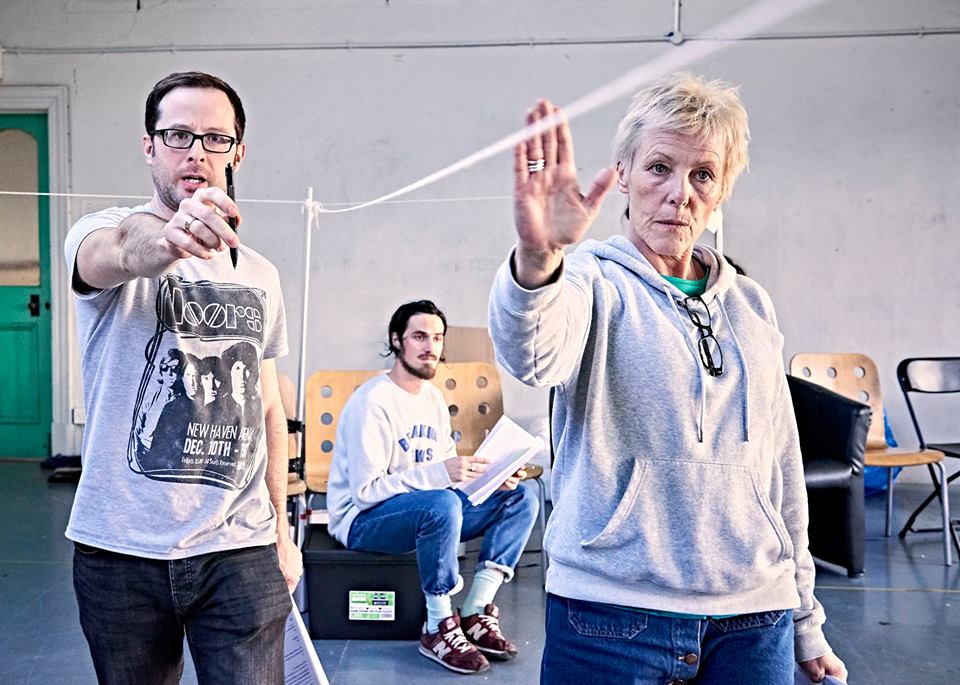
Mathilde likes the challenge that music and movement present to her as a theatrical director. She needs to limit herself to give space to John and Matteo. Her listening and collaborative frame of mind includes listening to actors and non-actors who participate in the production. When auditioning for the play, Mathilde asked them what they were doing on the night of the Referendum. The piecing together of different perspectives and experiences reinforces the nature of this production of Les Mis where different worlds coexist.
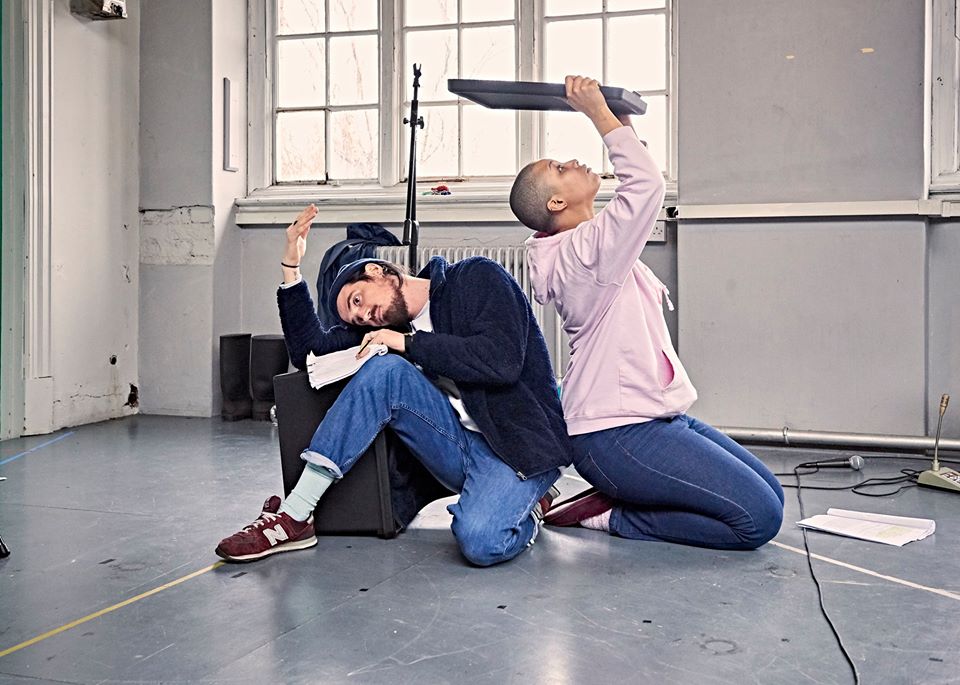
Choreographer Matteo Marfoglia tells me that the idea is to have two worlds side by side in the same space: the world of the actors and the world of the dancers. The two worlds do not interact. The dancers and the actors are on different journeys. The dancers, as soldiers, evoke with their movements and sounds the tragic sense of the historical dimension of both Waterloo and Brexit. Actors and dancers come in and out of the space interweaving the present with the past, connecting and disconnecting history with our daily lives.
Les Mis speaks to our own reality. It is this sense of the real and dance as a way to communicate real life that brought Matteo to Wales. Classically trained, Matteo first moved to Amsterdam and Rotterdam to become a contemporary dancer and, six years ago, he came to Wales to be part of the National Company Wales. He left classical ballet because it did not meet his thirst for something more authentic to human experience. He believes that contemporary dance allows the individual expression of emotions to come to the fore.
Matteo is training to become a ‘Gaga’ dance teacher. Gaga dance has been developed by Israeli dancer and choreographer Ohad Naharin. At its core, Gaga dance is about embodying the inward emotions of the dancer and how they connect with other dancers. The individuality of the dancer is expressed outward flowing into the shared consciousness of the group. ‘We feel the same emotions but we do so differently,’ Matteo explains, ‘We’re all connected through an emotion but this emotion is expressed in one’s unique and individual way.’
The emotional dimension of Les Mis is a pervasive sense of loss and futility contrasted with seductive pleasure and a hangovered awakening to the aftermath of the Referendum. As European nationals, Matteo and Mathilde experienced a deep sense of loss after the Referendum. They felt ‘under attack,’ as Matteo puts it. All of a sudden, they became foreigners, their presence questioned. Mathilde, who has been living in Britain for 20 years, is married to John and has British children who speak Welsh, felt the pain of exclusion, of being told to ‘go back home.’ She never needed to be formally British, she was part of British society, then Brexit struck.
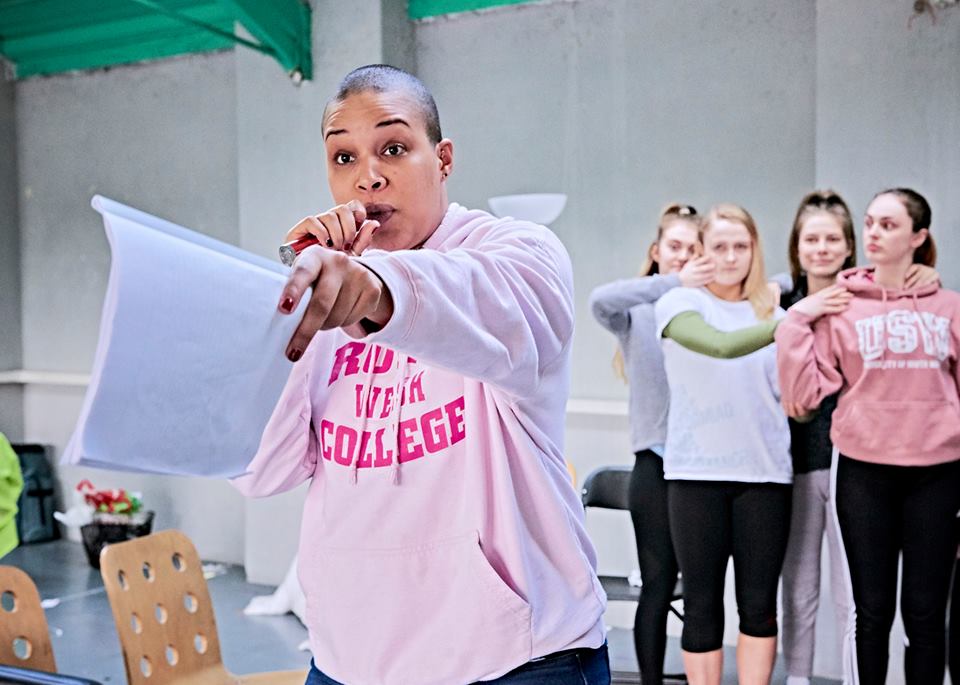
Brexit has shown that being foreign is an identity that stays with you no matter how long you live in your ‘adoptive’ country, no matter of many changes you make, no matter how much you absorb of the local culture. The ‘in-betweeness’ that has characterised Mathilde’s life became problematic with Brexit. Europe allowed overlapping identities that don’t stop at national borders. Europe, for Mathilde, is the wider project of togetherness. It is complicated and Europe often does not live up to the dream. The way the EU functions right now doesn’t work for many countries, she tells me, but they don’t question being part of it. ‘It’s like moaning at your parents,’ Mathilde says, ‘you moan, you don’t kill them.’
The vote brought sadness to Mathilde and also anger. She found that anger was more ‘socially acceptable’ than sadness because it makes one look strong, but she found it tiring. She needed compassion. She plunged into reading classics, such as Steinbeck, Camus, and Hugo. Classics were her way to get her head around what had just happened and avoid a reductive perspective. ‘When you’re angry at the Americans, you read Steinbeck, when you’re angry at Italians, you read Dante,’ Mathilde explains. Literary classics allow her to go beyond the narrow contingencies of today’s events, put things in perspective, and nourish compassion.
For Mathilde, Les Mis is a personal journey from sadness and anger to compassion. Compassion is in the ability to listen to one another, work together, and produce a work that is accessible to all.‘Will my grandmother get it?’ Mathilde asks herself when writing. She wants something accessible, not limited to regular theatre-goers. She wants to be open to others, wherever they come from culturally, socially, and, of course, politically. Some members of the production voted Leave.
‘It is our duty to be compassionate,’ says Mathilde, ‘to find strength in accepting defeat, not despair.’ It is compassion that allows to overcome division, to appreciate human complexity, and find strength in togetherness. Mathilde finds compassion in being supported by Chapter Arts Centre, in working together with actors, non-actors, and dance students, getting inspiration from all.
Mathilde, Matteo, and John tell me working together requires humility, respect, and trust. As John tells me, ‘you need to sense the time when to follow someone else’s lead, when to defend one’s position, and when to let go of it.’ You need to abandon the need to take control. This deeply collaborative and inclusive production of Les Mis is fruit of mutual trust and compassion. It is what the UK needs now.
